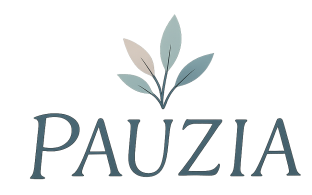Menopause Belly: Why It Happens and How to Manage It Naturally
Share
One of the most common concerns women face in their 40s and 50s is unexpected weight gain—particularly around the midsection. Often called “menopause belly,” this shift can feel frustrating, especially if your routine hasn’t changed.
The good news? You’re not alone, and there are gentle, natural strategies that may help you feel more comfortable and supported in your body.
What Is Menopause Belly?
“Menopause belly” refers to increased abdominal fat many women notice during perimenopause and menopause. This is often linked to hormonal shifts—especially declining estrogen—which can influence:
-
Where fat is stored
-
How your body uses insulin
-
Your metabolism and energy balance
Even women who eat well and exercise may notice changes. It’s not a sign of failure—it’s a sign that your body is evolving.
Why Does This Happen?
During menopause, estrogen levels decline. This can lead to:
-
Increased fat storage, especially around the abdomen
-
Changes in muscle mass (lean muscle naturally decreases with age)
-
Slower metabolism
-
Sleep disturbances, which can affect hunger and cravings
-
Higher cortisol levels from stress, which may encourage belly fat retention
Understanding these shifts is key to working with your body—not against it.
Natural Ways to Support a Healthy Midsection
While you can’t control your hormones entirely, there are several gentle lifestyle adjustments that may help:
🥗 1. Focus on Protein and Fiber
Protein helps preserve lean muscle, and fiber supports digestion and hormone balance. Try leafy greens, legumes, lean meats, or plant-based proteins.
🧘♀️ 2. Prioritize Strength and Movement
Weight-bearing exercises and light strength training help maintain muscle and support metabolism. Even walking and stretching regularly make a difference.
😴 3. Protect Your Sleep
Poor sleep is closely linked to weight gain. Create a nighttime routine and aim for 7–8 hours of rest whenever possible.
🍵 4. Be Mindful with Sugar and Alcohol
Excess sugar and alcohol can affect blood sugar and hormone balance. Consider mindful swaps like herbal teas or dark chocolate when cravings hit.
🧘 5. Manage Stress
Stress increases cortisol, which may contribute to belly fat. Explore gentle stress relief tools like journaling, meditation, or quiet outdoor time.
Final Thoughts
Menopause belly isn’t about willpower—it’s about biology. With a bit of compassion, awareness, and natural support, this stage of life can feel more manageable—and even empowering.
You deserve to feel strong, nourished, and confident at every age.
Pauzia - Changing the Change.
